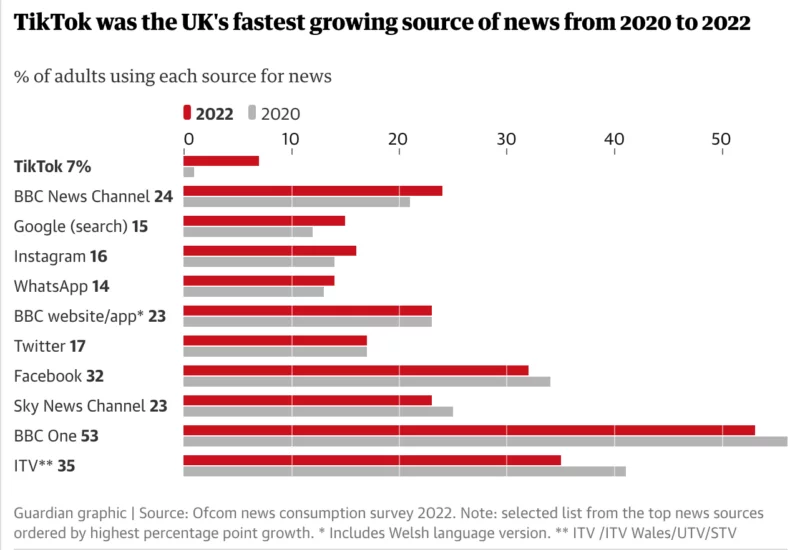Gen Z are favouring TikTok over Google as a search engine
‘Have you googled it?’ A phrase familiar to boomers, millennials and everyone in between. Since the search engine emerged on the world wide web in 1998, Google has been the number one choice for a large portion of the population, with the site processing over 8.5 billion searches per day.
Despite their decades long strangle hold on internet searches, Google are now facing stiff competition from the likes of TikTok when it comes to the Gen Z demographic.
It’s a threat alarming enough for the Google senior vice president Prabhakar Raghavan to voice at a technology conference in July 2022, where he announced, “In our studies, something like almost 40 percent of young people (U.S. users, ages 18 to 24), when they’re looking for a place for lunch, they don’t go to Google Maps or Search. They go to TikTok or Instagram.”
He added, “We keep learning, over and over again, that new internet users don’t have the expectations and the mindset that we have become accustomed to. The queries they ask are completely different…These users don’t tend to type in keywords but rather look to discover content in new, more immersive ways.”
Clued into the phenomenon, TikTok started playing into the apps search engine functionality through a targeted marketing campaign early this year.
In a survey conducted by UK communications regulator OfCom in mid 2022, TikTok was named as the fastest growing source of news for UK adults. The app was listed as the sixth most used source of news for young adults (27%) behind Instagram (46%) and Facebook (40%).

What is potentially alarming about this is that those respondents using TikTok indicated that they primarily get their news from other TikTok users (44%) over traditional news outlets (24%). The rising power of social media as a key conduit for information for young people has even been recognised by the political powers that be, with the White House briefing 30 influential TikTokers on the Russian invasion of Ukraine.
And while the shortform, personalised and intimate video content favoured by TikTok appeals to young people, a paper published by Harvard’s Shorenstein Centre on Media outlines a few key features in the app that make it vulnerable to misinformation.
Chief among them is TikTok’s platforming of remixed media, which allows users to upload videos and sound clips without attributing their origins – in turn making it near impossible to factcheck and contextualise what you are viewing. This coupled with the functionality of keeping users within the app (making it difficult to seek out additional sources) and the “for you page” serving up content from unverified sources determined by the company’s shrouded algorithm – makes for an unpredictable and potentially dangerous news source.
And with the rise of toxic personalities like Andrew Tate, who was searched some 22 billion times on TikTok by the end of 2022 – critical thinking and social media literacy are becoming all the more essential for young users.




